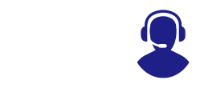Talent Development in High Volume Environments
Workforce Growth in Complex Operating Models
In high volume environments success hinges not only on output but on the capacity of teams to evolve under pressure. Whether within a customer service hub tech support ecosystem or any other scale-oriented operation workforce resilience determines long term value. Talent development becomes the bridge between speed and sustainability.
These environments operate under constant momentum. New client onboarding shifts in product offerings and seasonal load changes require a workforce that adapts quickly and stays consistent. Without a structured development pathway frontline staff burn out mid-level talent stagnates and leadership pipelines weaken.
BPOManila understands that growth depends not just on hiring at scale but on elevating skill sets across the lifecycle of each role. This means embedding development into the daily rhythm of operations. Training is not an isolated moment. It is a rhythm. An ongoing process aligned with business change and individual capability.
In these conditions traditional training methods fall short. What works is layered development that integrates learning with active workflow. Real time coaching, peer mentoring, quick-access resources and contextual reinforcement all contribute to continuous uplift.
Skills Advancement Across Career Pathways
Every role in a high output team must evolve. Entry level contributors must ramp fast and maintain consistency. Mid-tier employees must develop specialization and autonomy. Emerging leaders must balance metrics with influence. The framework for talent development must address all levels simultaneously.
This begins with skills mapping. Organizations must identify which capabilities are foundational and which are aspirational. This informs not only hiring criteria but progression strategy. From day one employees know what mastery looks like.
Workforce training in high volume environments leans on microlearning and modular content delivery. These techniques ensure that development remains digestible and tied to real-time outcomes. Whether through scenario based prompts, quick video refreshers or tiered certification tracks the approach must meet learners where they operate.
BPOManila integrates this model into every program. Internal teams design curriculum that evolves with client expectations and market shifts. Subject matter experts from each function contribute to upskilling design ensuring relevance and immediacy.
Soft skills are also prioritized. As automation handles more basic tasks human teams must bring nuance, empathy and adaptability to the table. Conflict navigation tone adjustment data interpretation and prioritization under pressure become critical. Talent development supports these competencies through experiential learning and reflective practice.
Leadership Elevation Within Operational Layers
Leadership in a high volume environment requires more than delegation and reporting. It demands clarity under pressure support across functions and the ability to coach in real time. Talent development programs must cultivate these traits intentionally.
One of the core drivers of retention is the relationship between staff and supervisors. Managers are not simply task enforcers. They are career multipliers. Organizations that treat frontline leadership as a strategic asset outperform peers in both employee engagement and output.
BPOManila invests heavily in internal leadership programs. High potential contributors are identified early and exposed to cross functional opportunities. Feedback loops are tightened. Performance coaching is standardized. Leadership becomes measurable, not just visible.
These programs are grounded in operational context. Supervisors are taught to manage performance metrics while protecting team wellbeing. They learn to communicate with clarity under pressure balance workloads across shifting queues and represent employee needs upstream.
Importantly these managers also become teachers. They reinforce the culture of growth by modeling transparency, resilience and continuous learning. Development cascades from their presence not just their process.
Enablement Systems for Scalable Execution
Talent development in volume driven operations must be supported by systems. It cannot depend on single trainers or one time sessions. The infrastructure must reinforce learning at every touchpoint from onboarding to escalation.
Enablement platforms host interactive materials, track skill progression and integrate with KPIs. These tools allow talent teams to identify gaps, intervene quickly and recognize momentum. Training becomes visible, not just anecdotal.
Support and maintenance teams rely on this data to personalize follow up plans, assign coaching moments and ensure consistency across distributed operations. Whether onsite or remote standardization is achieved through structured enablement architecture that scales with workforce complexity.
Gamification also plays a role. Progress recognition, peer competition and reward structures keep energy high. In fast paced teams motivation is currency and when development feels active retention improves.
Knowledge bases, self guided tools and skill accelerators supplement formal learning. They create a culture of self sufficiency where staff feel empowered to grow without always waiting for instruction.
These systems also feed workforce planning. Leaders can forecast who is promotion ready, who needs refreshers and which programs drive the strongest behavioral lift. Talent development becomes a loop not a line.
Organizational Culture as a Growth Framework
Beyond skills and systems talent development thrives in cultures that value learning. In high volume settings culture must be reinforced intentionally. Every process of communication and ritual sends a message about what growth looks like.
Teams that feel disposable do not invest in improvement. They meet metrics for survival not success. But when employees know their development matters they align with the organization’s future. They start asking questions, building cross team relationships and identifying opportunities.
BPOManila builds this culture through visibility. Employee journeys are shared. Wins are celebrated. Internal mobility is championed. Development is not limited to high performers. Everyone has access to growth. Everyone has a pathway.
Coaching becomes a team habit not a private event. Managers support skip level conversations. Peers mentor peers. Development language is embedded in standups, recaps and reviews. When development becomes part of how people talk it becomes part of how they think.
This growth oriented culture also serves the business. Clients trust partners who prioritize talent. Stability quality and innovation are the outcomes of strong employee evolution. Talent development is not only an internal strategy. It is external proof of reliability.
Closing Insight for Scaled Workforce Success
In high volume environments talent development is a necessity not a luxury. Systems can automate tasks but people still drive quality adaptation and connection. Organizations that scale people as they scale output build resilience that cannot be replicated through process alone.
BPOManila has demonstrated that with the right strategy platforms and cultural reinforcement talent thrives even in the most demanding settings. Growth is no longer reactive. It becomes embedded.
Whether preparing entry level teams for operational speed or grooming future leaders for cross functional impact talent development is the single most strategic investment in high performance operations.
If your workforce model requires both volume and quality, start with your people. Build them for the now. Grow them for what’s next.





